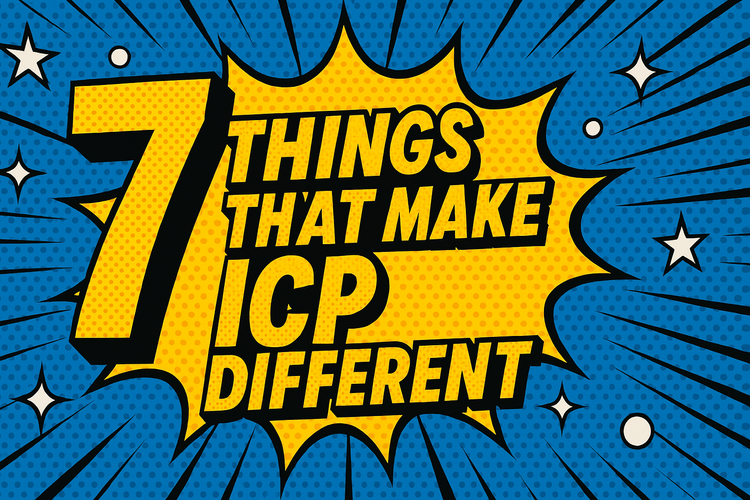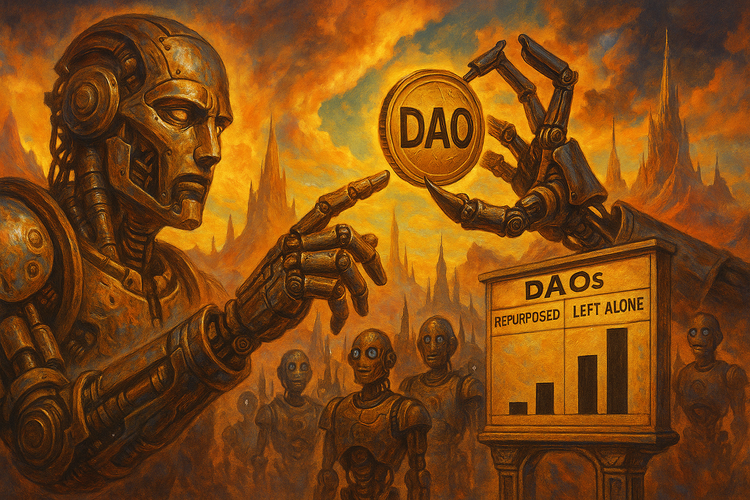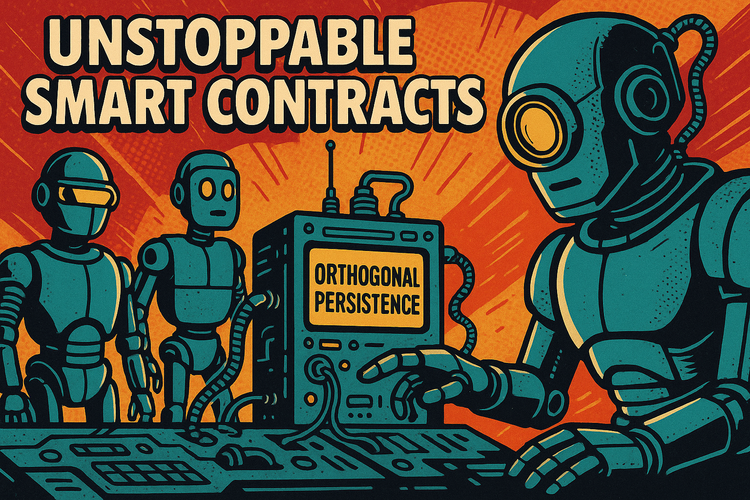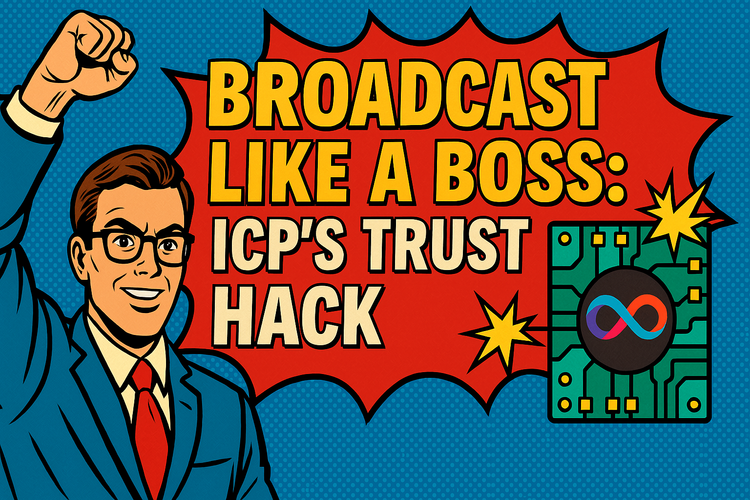Unleashing the Power of Decentralized Internet: A Comprehensive Beginner's Guide to Internet Computer and ICP

Are you curious about the future of the internet and the role of blockchain technology in shaping it? The Internet Computer, developed by the DFINITY Foundation, is a groundbreaking innovation that aims to create a decentralized internet infrastructure, providing a scalable, secure, and user-friendly platform for developers to build and host applications. In this comprehensive beginner's guide, we will explore the inner workings of the Internet Computer blockchain, its native ICP token, and how this cutting-edge technology is revolutionizing the way we interact with the digital world.
As a key component of the Internet Computer ecosystem, ICP tokens play a vital role in governance, staking, and utility within decentralized applications (dApps) built on the platform. By diving into the Network Nervous System (NNS) and the Motoko programming language, you will gain an in-depth understanding of the Internet Computer's unique features and how they contribute to a more decentralized and secure digital landscape.
Join us on this exciting journey as we uncover the potential of the Internet Computer and ICP, providing you with valuable insights and resources to help you navigate and participate in this groundbreaking ecosystem.
Understanding the Internet Computer Blockchain
The Internet Computer, an ambitious project by the DFINITY Foundation, is designed to revolutionize the digital landscape by providing a decentralized internet that is both scalable and secure. Through its innovative approach to blockchain technology, the Internet Computer aims to empower developers and users alike by simplifying the development and hosting of decentralized applications (dApps) and services. Let's dive deeper into the core features of the Internet Computer blockchain and explore how it sets itself apart from traditional blockchains.
2.1 The Vision and Mission of DFINITY Foundation
DFINITY Foundation, the organization behind the Internet Computer, envisions a world where the internet is decentralized and free from the control of a few powerful entities. With this mission in mind, they have developed a cutting-edge blockchain platform that not only democratizes access to the internet but also fosters innovation and collaboration among developers and users worldwide.
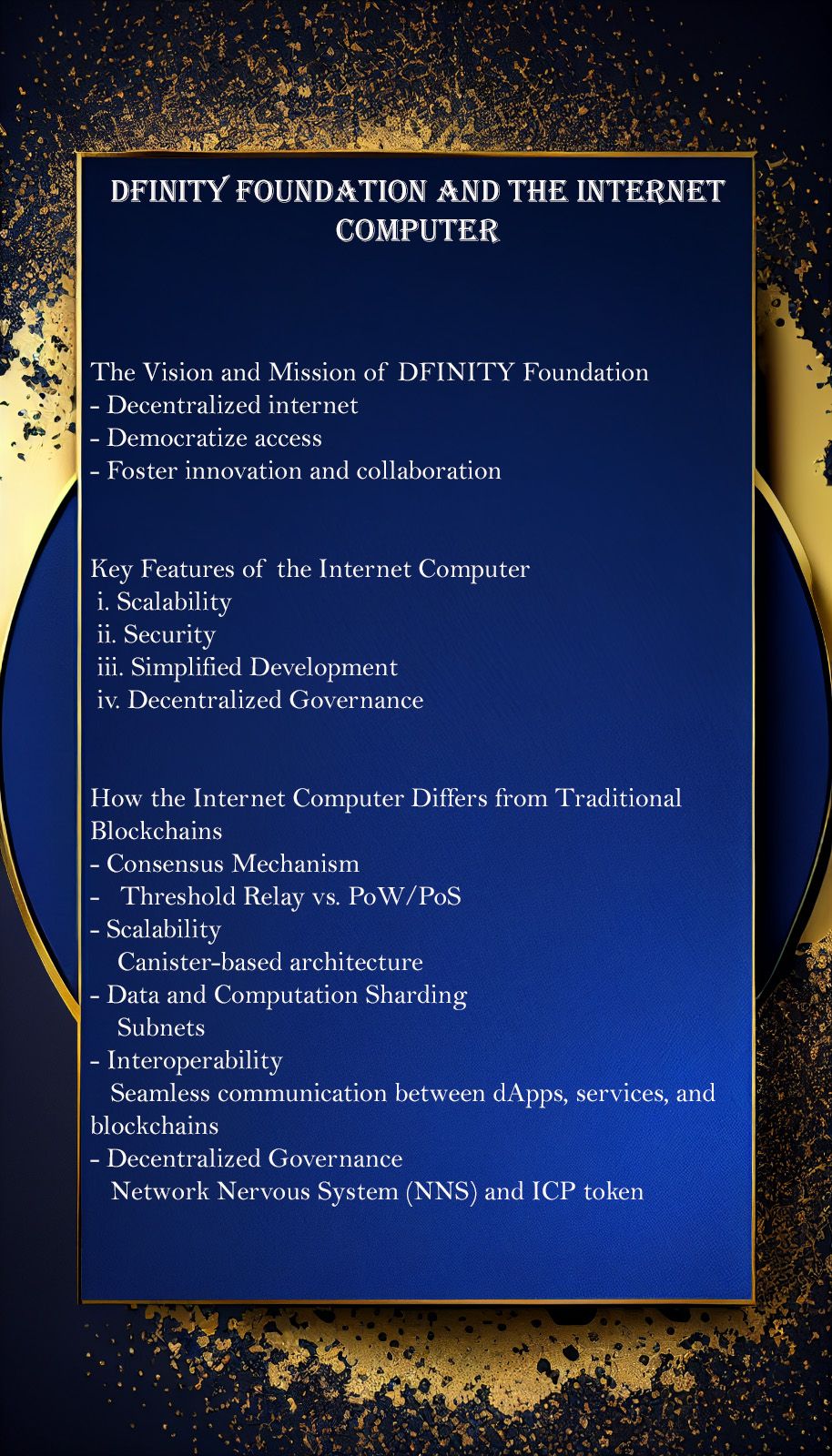
2.2 Key Features of the Internet Computer
The Internet Computer boasts several groundbreaking features that set it apart from traditional blockchain platforms:
i. Scalability: The Internet Computer is designed to scale seamlessly, supporting an ever-growing number of dApps and services without sacrificing performance or security.
ii. Security: Leveraging advanced cryptography and consensus algorithms, the Internet Computer provides a secure and tamper-proof environment for dApps and data, protecting both developers and users from potential threats.
iii. Simplified Development: With the introduction of the Motoko programming language and comprehensive developer resources, building and deploying dApps on the Internet Computer is easier and more efficient than ever before.
iv. Decentralized Governance: Through the Network Nervous System (NNS) and ICP token, the Internet Computer enables a community-driven approach to governance, empowering token holders to participate in decision-making processes that shape the platform's future.
How the Internet Computer Differs from Traditional Blockchains
The Internet Computer stands out from traditional blockchains by addressing their inherent limitations and providing a more robust and efficient platform for building and hosting decentralized applications and services. Here are some key metrics that demonstrate how the Internet Computer distinguishes itself:
- Consensus Mechanism: Traditional blockchains often rely on Proof of Work (PoW) or Proof of Stake (PoS) consensus mechanisms. These can lead to slow transaction processing times and high energy consumption. The Internet Computer, on the other hand, utilizes a unique consensus mechanism called Threshold Relay, which combines with other advanced protocols like Chain Key Technology and DeFi's Probabilistic Slot Consensus (PSC) to deliver faster and more secure transaction processing, ultimately reducing energy consumption and resource requirements.
- Scalability: One of the significant challenges faced by traditional blockchains is their limited scalability, resulting in congested networks, slow transaction times, and high fees. The Internet Computer addresses this issue by implementing a canister-based architecture, which allows for parallel and independent execution of dApps and smart contracts. This scalable infrastructure can seamlessly accommodate an increasing number of users, applications, and transactions without compromising performance.
- Data and Computation Sharding: Traditional blockchains often struggle with data storage and computation limitations. The Internet Computer introduces advanced sharding techniques, dividing the network into smaller, manageable units called subnets. Each subnet can independently process and store data, allowing the network to distribute computational resources efficiently and maintain high performance, even as the number of dApps and users increases.
- Interoperability: Traditional blockchains often operate in isolation, making cross-chain communication and data exchange challenging. The Internet Computer's architecture facilitates seamless interoperability between dApps, services, and other blockchains, enabling developers to create more versatile and interconnected applications.
- Decentralized Governance: The Internet Computer introduces a decentralized governance model through the Network Nervous System (NNS) and the ICP token. This model allows ICP token holders to participate in decision-making processes and propose or vote on proposals to upgrade or modify the platform. This community-driven approach ensures that the Internet Computer remains adaptable and responsive to the needs of its users, in contrast to the more rigid governance structures of some traditional blockchains.
ICP Token: Fueling the Internet Computer
The ICP token plays a crucial role in the Internet Computer ecosystem, powering its decentralized infrastructure and facilitating a wide range of functions, from governance to utility within dApps.
3.1 The Role of ICP in the Ecosystem
ICP tokens are the lifeblood of the Internet Computer, serving as the primary means of value transfer and governance within the platform. By integrating ICP tokens into its core systems, the Internet Computer ensures the smooth functioning of its decentralized applications and services while also empowering its community to participate in the network's ongoing development and decision-making processes.
3.2 Use Cases of ICP
ICP tokens have several important use cases within the Internet Computer ecosystem, which include:
i. Governance: ICP token holders can participate in the decentralized governance of the Internet Computer through the Network Nervous System (NNS). They can submit proposals, vote on changes to the platform's protocols, and contribute to the evolution of the network's policies and features.
ii. Staking and Rewards: ICP tokens can be staked, or locked up, by token holders to support the network's operations and security. In return, they can earn rewards in the form of additional ICP tokens. Staking not only provides a financial incentive for ICP holders but also helps maintain the network's stability and security.
iii. Utility in Applications and Services: ICP tokens serve as a utility token within the Internet Computer ecosystem, allowing users to access and interact with dApps and services built on the platform. They can be used for various purposes, such as paying for computational resources, accessing premium features within dApps, or engaging in decentralized finance (DeFi) activities.
By fulfilling multiple roles within the Internet Computer ecosystem, ICP tokens not only facilitate seamless operations and interactions on the platform but also enable a community-driven approach to network governance and development.
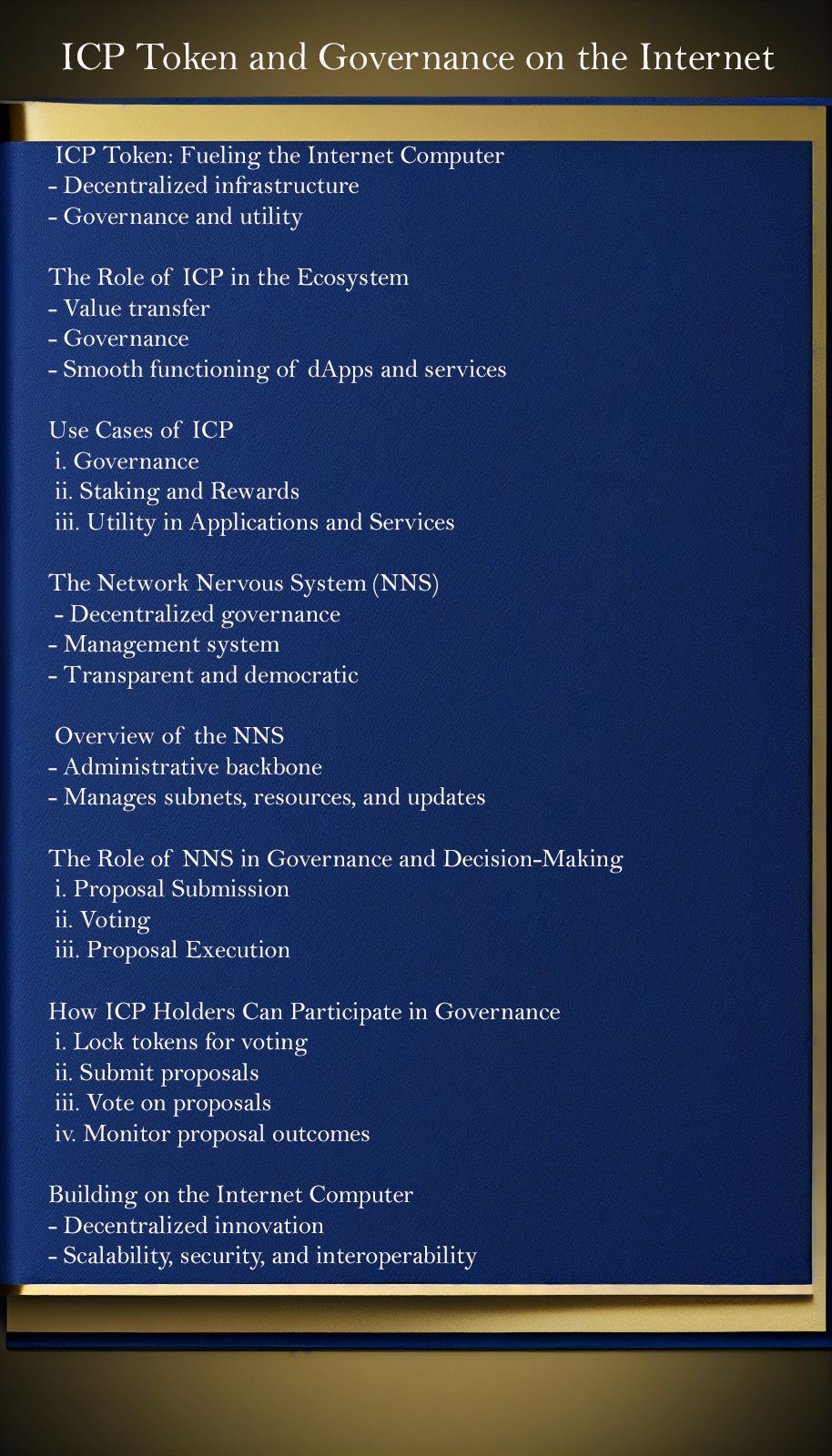
The Network Nervous System (NNS)
The Network Nervous System (NNS) is a cornerstone of the Internet Computer ecosystem, acting as its decentralized governance and management system. This innovative component empowers ICP token holders to actively participate in the decision-making processes that drive the platform's evolution.
4.1 Overview of the NNS
The NNS functions as the administrative and governance backbone of the Internet Computer, orchestrating key aspects of the platform, such as managing subnet creation, allocating computational resources, and updating network protocols. By leveraging the power of the NNS, the Internet Computer ensures that its operations remain transparent, democratic, and responsive to the needs of its users.
4.2 The Role of NNS in Governance and Decision-Making
One of the primary functions of the NNS is to facilitate decentralized governance on the Internet Computer. ICP token holders can participate in the platform's decision-making processes by submitting proposals and voting on network updates, modifications, or other changes. The NNS enables the following governance activities:
i. Proposal Submission: ICP token holders can submit proposals for network upgrades, parameter adjustments, or other platform improvements. These proposals are then subject to review and voting by the community.
ii. Voting: ICP holders can use their tokens to vote on proposals submitted by others, with each token representing one vote. The NNS tallies the votes and determines the outcome based on a predefined consensus threshold.
iii. Proposal Execution: If a proposal receives enough support, the NNS automatically executes the proposed changes, ensuring that the platform continuously adapts and evolves in response to community input.
4.3 How ICP Holders Can Participate in Governance
To actively engage in the governance of the Internet Computer, ICP token holders must follow these steps:
i. Acquire ICP tokens: Token holders must first acquire ICP tokens through exchanges, token sales, or staking rewards. These tokens serve as their voting power in the NNS.
ii. Lock tokens for voting: To participate in governance, ICP holders must lock a portion of their tokens, known as "staking," to gain voting power within the NNS.
iii. Submit proposals: Token holders can submit proposals for network upgrades, adjustments, or other modifications through the NNS interface, using their staked ICP tokens.
iv. Vote on proposals: ICP holders can cast their votes on submitted proposals, with the weight of their vote determined by the number of staked tokens they possess.
v. Monitor proposal outcomes: Token holders can track the progress of proposals and their outcomes within the NNS interface, staying informed about the platform's ongoing development and evolution.
By providing a transparent and democratic system for network governance, the NNS empowers ICP token holders to shape the Internet Computer's future and ensures that the platform remains responsive to the needs and priorities of its user base.
Building on the Internet Computer: Embracing Decentralized Innovation
Developers have a unique opportunity to embrace the power of the Internet Computer to create innovative, decentralized applications (dApps) and services that redefine the digital landscape. With its unparalleled scalability, security, and interoperability, the Internet Computer is an ideal platform for developers looking to build the future of the internet.
5.1 The Motoko Programming Language
The Internet Computer introduces Motoko, a programming language specifically designed for building dApps and services on its platform. Motoko's syntax and features are tailored to work seamlessly with the Internet Computer's unique architecture, making it easier for developers to create secure and high-performance applications.
5.2 Developer Resources and Tools
To support the development process, the Internet Computer ecosystem offers a wealth of resources and tools .Here are some helpful links for developers of all levels looking to learn about and build on the Internet Computer blockchain:
- DFINITY Developer Center: The official developer hub provides comprehensive documentation, tutorials, and guides to help developers get started and build on the Internet Computer.
- Motoko Playground: An interactive online environment where developers can experiment with the Motoko programming language and test their code.
- Internet Computer Interface Specification: A detailed resource that covers the interfaces and system components of the Internet Computer.
- DFINITY Developer Forum: A community forum where developers can ask questions, share knowledge, and collaborate with other Internet Computer developers.
- DFINITY GitHub: The official GitHub repository containing various tools, SDKs, and libraries to assist developers in building on the Internet Computer.
5.3 Benefits of Building on the Internet Computer
Developing dApps and services on the Internet Computer brings numerous advantages compared to traditional blockchain platforms:
i. Scalability: The Internet Computer's canister-based architecture allows for parallel and independent execution of dApps and smart contracts, ensuring seamless performance even as the platform scales.
ii. Security: Advanced cryptography and consensus algorithms provide a secure and tamper-proof environment for dApps and their data, protecting both developers and users from potential threats.
iii. Interoperability: The Internet Computer's architecture enables seamless communication between dApps, services, and other blockchains, fostering greater innovation and versatility in application development. Also you can develop cross-chain application using Bitcoin Integration.
iv. Decentralized Governance: Developers can leverage the Internet Computer's Network Nervous System (NNS) and ICP token for governance and decision-making within their applications, ensuring a more democratic and user-centric approach.
By harnessing the power of the Internet Computer, developers can unlock new possibilities in decentralized innovation, building applications and services that transcend the limitations of traditional blockchain platforms and shape the future of the internet.
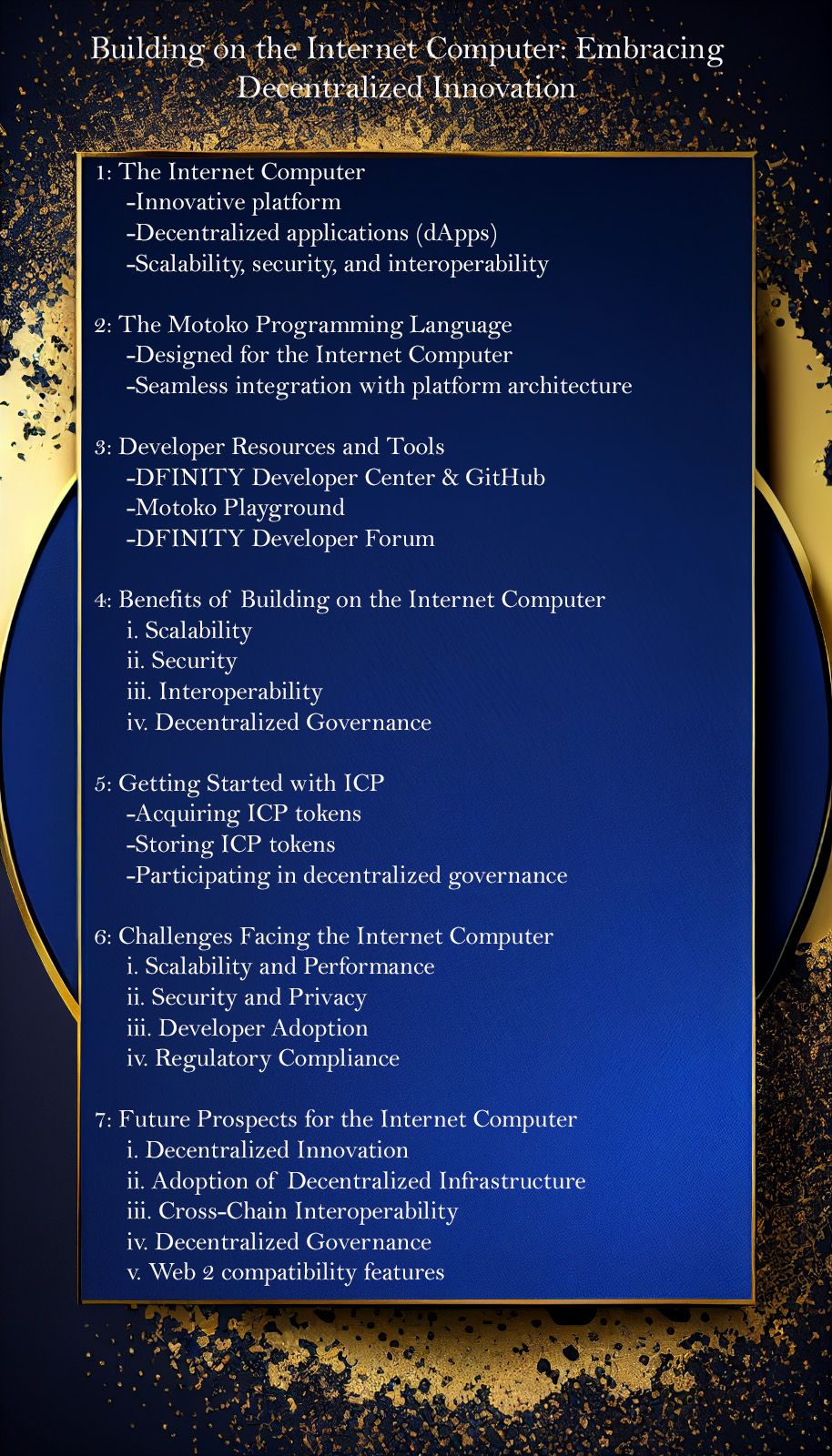
Getting Started with ICP: Your Gateway to the Internet Computer
The ICP token is an integral part of the Internet Computer ecosystem, serving as both a governance and utility token for users and developers alike. In this guide, we'll walk you through the essential steps to get started with ICP, from acquiring tokens to participating in the platform's decentralized governance.
6.1 Acquiring ICP Tokens
To begin your journey with ICP, you'll first need to acquire some tokens. There are several ways to obtain ICP tokens, including:
i. Cryptocurrency Exchanges: ICP tokens can be purchased on various cryptocurrency exchanges, such as Binance, Coinbase, and Kraken. Simply create an account, complete any necessary identity verification, and trade your preferred cryptocurrency or fiat currency for ICP tokens.
ii. Staking Rewards: By staking your ICP tokens, you can earn additional tokens as rewards for supporting the network's security and stability.
6.2 Storing ICP Tokens
Once you've acquired ICP tokens, it's essential to store them securely. You can use the following storage options:
i. Software Wallets: Wallets such as the DFINITY Internet Identity or NNS Wallet can be used to securely store and manage your ICP tokens. Other wallets you can use - Bitfinity, Stoic & Plug wallet.
ii. Hardware Wallets: For enhanced security, consider using a hardware wallet like Ledger or Trezor, which offers offline storage for your tokens.
6.3 Participating in Decentralized Governance
As an ICP token holder, you have the opportunity to participate in the decentralized governance of the Internet Computer through the Network Nervous System (NNS). By staking your tokens and voting on proposals, you can help shape the platform's future and contribute to its ongoing growth.
Challenges and Future Prospects: Navigating the Internet Computer Landscape
As the Internet Computer continues to evolve and expand, it faces a unique set of challenges and opportunities. Understanding these challenges and exploring the platform's future prospects is essential for users, developers, and investors alike.
7.1 Challenges Facing the Internet Computer
The Internet Computer, while groundbreaking in its approach, must address several challenges to maintain its momentum and achieve widespread adoption:
i. Scalability and Performance: As the number of dApps and users on the Internet Computer grows, the platform must maintain its scalability and performance to ensure seamless experiences for its users.
ii. Security and Privacy: Protecting user data and maintaining a secure environment for dApps and transactions is a top priority. The Internet Computer must continuously adapt to new threats and enhance its security measures.
iii. Developer Adoption: Encouraging developers to build on the Internet Computer and adopt its unique features, such as the Motoko programming language, is crucial for the platform's success.
iv. Regulatory Compliance: As with any decentralized platform, the Internet Computer may face regulatory scrutiny from various jurisdictions, which could impact its operations and adoption.
7.2 Future Prospects for the Internet Computer
Despite these challenges, the Internet Computer presents a promising future, with several factors contributing to its potential growth and success:
i. Decentralized Innovation: The Internet Computer's open and decentralized nature fosters a vibrant ecosystem of dApps and services, which can drive innovation across various industries.
ii. Adoption of Decentralized Infrastructure: As more users and organizations recognize the benefits of decentralized infrastructure, the Internet Computer stands to gain increased adoption and prominence.
iii. Cross-Chain Interoperability: The Internet Computer's ability to seamlessly integrate with other blockchains can pave the way for enhanced collaboration and innovation within the broader blockchain ecosystem. For example, recent Bitcoin integration initiative.
iv. Decentralized Governance: The Internet Computer's Network Nervous System (NNS) empowers users to actively participate in the platform's governance, fostering a democratic and community-driven approach to decision-making.
v. Web 2 compatibility features : These include unique and promising features like Bitcoin & Ethereum native integration , Enable canisters to make HTTP(S) requests, etc
Conclusion: Embracing the Transformative Power of the Internet Computer
As we've explored throughout this guide, the Internet Computer represents a groundbreaking vision for the future of the internet, offering a decentralized, secure, and scalable platform for users and developers alike. With its innovative canister-based architecture, the Motoko programming language, and the Network Nervous System (NNS) for governance, the Internet Computer is poised to revolutionize the way we interact with the digital world.
In conclusion, the Internet Computer presents a wealth of opportunities for those who choose to engage with its ecosystem. From acquiring and utilizing ICP tokens, participating in decentralized governance, and building or exploring dApps and services, the platform offers a truly transformative experience.
As the Internet Computer continues to evolve and overcome challenges, its future prospects shine bright, with the potential to redefine the internet and establish itself as a significant player in the blockchain space. By embracing the Internet Computer and its unique offerings, users, developers, and investors can become part of a dynamic community driving decentralized innovation, collaboration, and growth in the digital age.
Please share your thoughts on the article by clicking below Emoji ...
Disclosure
*The information provided on this cryptocurrency blog is for educational and informational purposes only and should not be construed as financial, investment, or trading advice. The authors, contributors, and administrators of this blog are not licensed financial professionals and do not hold any formal qualifications in the fields of finance, economics, or cryptocurrencies.
The content on this blog is based on the authors' personal opinions, experiences, and research, and should not be considered as professional financial guidance. While we strive to provide accurate, up-to-date, and reliable information, we cannot guarantee the accuracy or completeness of the information presented. Cryptocurrency markets are highly volatile, and investments in cryptocurrencies and related assets carry a substantial risk of loss.
Before making any financial decisions or investments, you should consult with a qualified financial advisor or perform your own research and analysis. Any actions taken based on the information provided on this blog are at your own risk, and the authors, contributors, and administrators of this blog cannot be held liable for any losses or damages resulting from the use of the information found herein.
By using this blog, you acknowledge that you have read and understood this disclosure and agree to assume full responsibility for any decisions or actions you take based on the information provided.*





